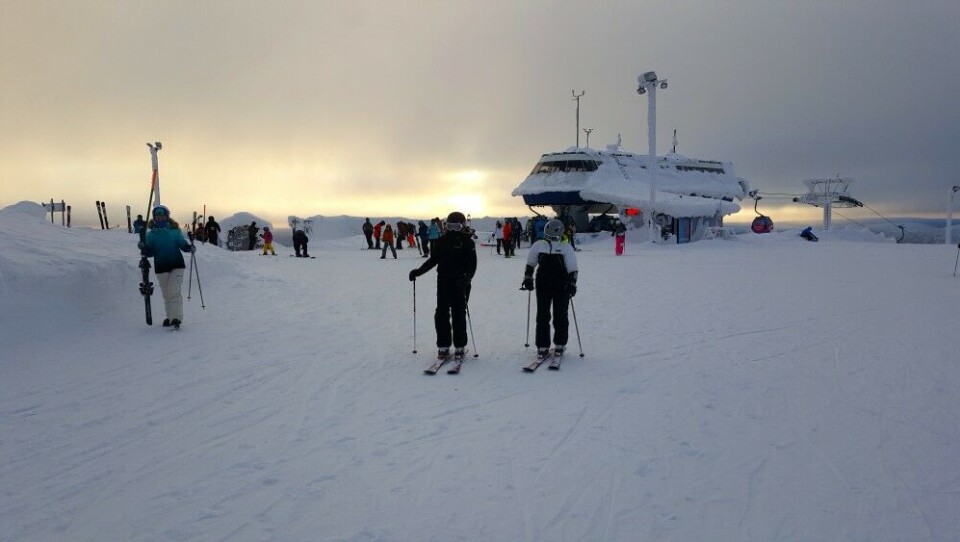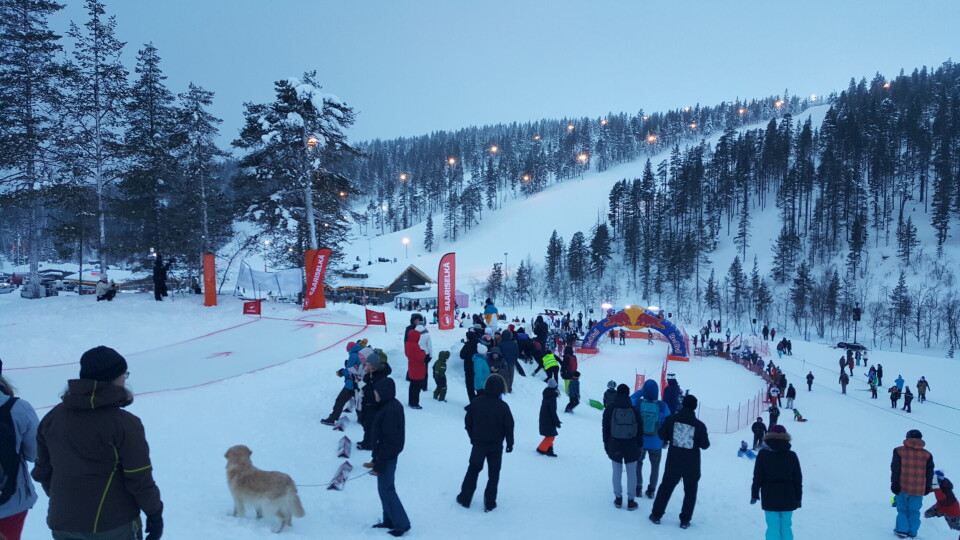
Finns continue with ski holiday plans despite travel advisory
Authorities say people should be responsible and consider whether travelling makes sense during the coronavirus outbreak.
While the novel coronavirus epidemic has undoubtedly hit the tourism industry in Finland’s largest ski resorts, many domestic tourists are going about their holiday plans as usual, despite government declaring an emergency in the country.
According to authorities, normal operation may continue for as long as the regulations permit. However, citizens are being asked to take responsibility for their actions and carefully consider whether travelling to Lapland or holiday cottages makes sense in this situation.
The situation has drawn the attention of the Lapland Police, which monitors compliance with the ban on assembly.
“It is a bit funny that we are intervening in the street if more than 10 people gather, but across the road, restaurants’ outdoor terraces are full. That should not be the case,” says Lapland police chief Esa Heikkinen.
Lapland’s regional medical officer Sari Kemppainen called for citizens to behave responsibly.
“As a civil servant, I would say that citizens need to reflect on their own actions in this situation,” said Kemppainen.
Head Of Department at the Ministry of Social Affairs and Health Tuija Kumpulainen said stricter curbs on movement will be discussed.
“I can’t say what is being done or if anything is being done, but yes it will certainly be brought up in our discussions,” Kumpulainen says.

Few restaurants and hotels still open
Vinkkari, the largest after ski venue in the Levi ski resort in Lapland was closed on Thursday. In the resort village of Saariselkä, restaurants are no longer serving local people, there have been discussions questioning the need for resorts to even remain open.
In fact, many domestic tourists have extended their stay in Lapland, reveals Visit Levi’s CEO Yrjötapio Kivisaari.
“Reservations are being cancelled on the whole, but there are also those who have told us that now that they are working remotely, they can extend their ski holiday for a little longer.”
At the same time, ski resorts are receiving calls about people wanting to take over cancellation spots.
Fishing and holiday cottage entrepreneur Jorma Roininen from Nurmes is delighted that his accommodation options are filled up for spring.
“At first, many tour companies and older travellers cancelled their stays. But couples who had ortiginally made travel plans to Spain or Canary Islands have been asking us if we have rooms available. Another interested party was a group of backpackers who were ready for a trip to Norway but can’t get there.”
Possible burden on health infrastructure
On Thursday, Prime Minister Sanna Marin reminded citizens that government restrictions are designed to reduce people’s social interaction to prevent the spread of infections.
“There are no restrictions on mobility at the moment, but it has to be kept in mind that in smaller communities the capacity for health care is not the same as in larger communities,” Marin said.
Although health service providers in Lapland always ramp up capacity for the tourism season, Kemppainen says that the pandemic could increase demand.
“Of course, it depends on the volume of the epidemic in Lapland and whether or not vacationers return to their homes,” Kemppainen says.
Hanna Raittinen, chief physician at Kuusamo health centre in the northern Ostrobothnian region points out that the number of doctors is primarily intended to serve the normal population in the area — about 15,000 permanent residents. But if the tourism season continues, the population of the ski resort area will increase by thousands.
“Our health centre is better equipped than a normal municipality, for instance, we have a 24-hour on-call service. In a situation where the population is getting sicker, there will be an overload on the system,” Raittinen said.
This story is posted on the Barents Observer as part of Eye on the Arctic, a collaborative partnership between public and private circumpolar media organizations.















